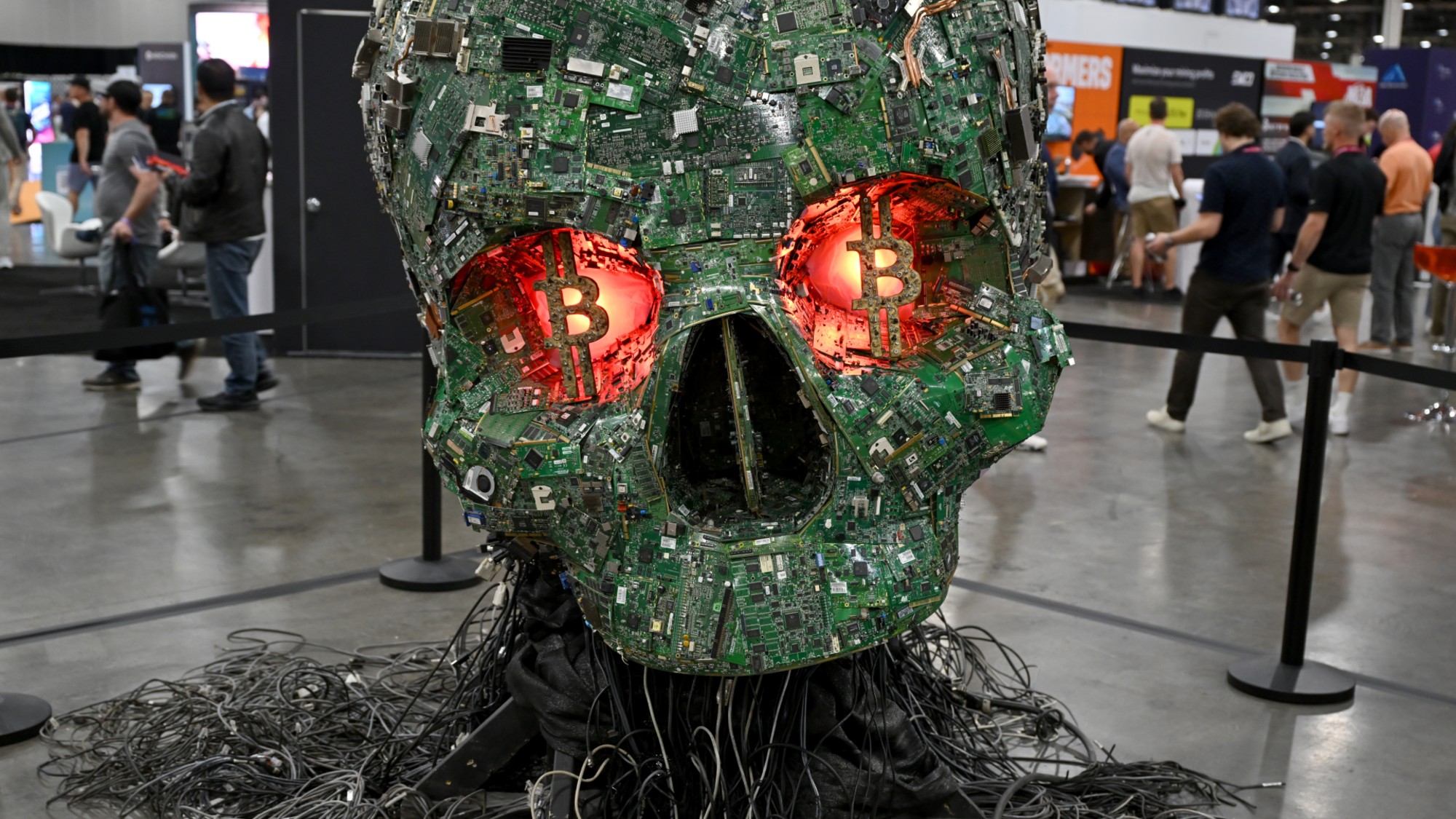Bitcoin braces for a quantum computing onslaught
The cryptocurrency community is starting to worry about a new generation of super-powered computers that could turn the digital monetary world on its head


Quantum computing, the prospect of advanced computations beyond the binary limitations of ones or zeros, may be the harbinger of advancements to come. But cryptocurrency adherents are starting to wonder if their digital monetary system is ready for what this new age of data processing might bring.
Preparing for a 'potential catastrophe'
The "technological leap" of quantum computing could "pose new risks" to cryptocurrency users and potentially "undermine the cryptographic backbone of blockchain," said quantum computer developer Yuval Boger at Forbes. Although the "immediate risks are low," the future could see "large-scale, error-corrected quantum computers" capable of running algorithms that could break the elliptic curve cryptography (ECC) used by bitcoin as one of the industry's main security protocols.
While current quantum computers "aren't yet powerful enough," the "risk is real in the long term," said Isaac Kim, a computer science professor at UC Davis, in a recent interview with the crypto research firm Presto Labs. Despite "slight differences" between the levels of risk for each different type of cryptocurrency, "any blockchain that uses ECC, like bitcoin and ethereum, are vulnerable."
The Week
Escape your echo chamber. Get the facts behind the news, plus analysis from multiple perspectives.

Sign up for The Week's Free Newsletters
From our morning news briefing to a weekly Good News Newsletter, get the best of The Week delivered directly to your inbox.
From our morning news briefing to a weekly Good News Newsletter, get the best of The Week delivered directly to your inbox.
"Crypto is underprepared," researcher Rick Maeda said in an interview with CoinDesk on Monday. "The biggest risk is just waiting too long."
Although some members of the crypto community are willing to "shrug off" the looming threat posed by quantum computing, "behind closed doors," a number of leading figures in the field are "concerned about a potential catastrophe," said Decrypt. Experts now believe the industry has "less than a decade, even a handful of years" to enact "contingency plans." And even that might be optimistic: A new paper published last month by Google Quantum AI researcher Craig Gidney suggests that the RSA encryption used by bitcoin could be overcome using "20 times fewer quantum resources than previously estimated," Benzinga said.
'Post-quantum' protections
Given how serious the threat to cryptocurrency from quantum computing is, a "proactive approach" is "critical" to preempt disruption to an industry worth hundreds of billions of dollars annually, researchers from the University of Kent's School of Computing said in a late 2024 study detailing what such an approach might look like. The only way to prevent wide-scale quantum disruptions for an asset like bitcoin, the authors said, is "to upgrade — replace — the currently used public-key cryptosystems" to ones that have "no known vulnerabilities to quantum attacks." This is known as "post-quantum cryptosystems."
That type of complete "protocol update" would "take the cryptocurrency offline for 76 days," Fortune said. More "realistically," bitcoin could dedicate just a quarter of its server space to the upgrade — allowing users to "continue to mine and trade at a slower rate" — in which case the downtime would last an estimated ten months.
A free daily email with the biggest news stories of the day – and the best features from TheWeek.com
Broadly, that downtime risk speaks to what Maeda said is a "key barrier" to addressing the looming challenge. "It's difficult to create a way to monetize this," Maeda said to CoinDesk. But those preparations need to happen sooner rather than later, he added. "We can't wait until the threat is real to start taking it seriously. By then, it's already too late."
Rafi Schwartz has worked as a politics writer at The Week since 2022, where he covers elections, Congress and the White House. He was previously a contributing writer with Mic focusing largely on politics, a senior writer with Splinter News, a staff writer for Fusion's news lab, and the managing editor of Heeb Magazine, a Jewish life and culture publication. Rafi's work has appeared in Rolling Stone, GOOD and The Forward, among others.
-
 The battle over the Irish language in Northern Ireland
The battle over the Irish language in Northern IrelandUnder the Radar Popularity is soaring across Northern Ireland, but dual-language sign policies agitate division as unionists accuse nationalists of cultural erosion
-
 Villa Treville Positano: a glamorous sanctuary on the Amalfi Coast
Villa Treville Positano: a glamorous sanctuary on the Amalfi CoastThe Week Recommends Franco Zeffirelli’s former private estate is now one of Italy’s most exclusive hotels
-
 How roadkill is a surprising boon to scientific research
How roadkill is a surprising boon to scientific researchUnder the radar We can learn from animals without trapping and capturing them
-
 Claude Code: Anthropic’s wildly popular AI coding app
Claude Code: Anthropic’s wildly popular AI coding appThe Explainer Engineers and noncoders alike are helping the app go viral
-
 What is Roomba’s legacy after iRobot bankruptcy?
What is Roomba’s legacy after iRobot bankruptcy?In the Spotlight Tariffs and cheaper rivals have displaced the innovative robot company
-
 The robot revolution
The robot revolutionFeature Advances in tech and AI are producing android machine workers. What will that mean for humans?
-
 Australia’s teen social media ban takes effect
Australia’s teen social media ban takes effectSpeed Read Kids under age 16 are now barred from platforms including YouTube, TikTok, Instagram, Facebook, Snapchat and Reddit
-
 Texts from a scammer
Texts from a scammerFeature If you get a puzzling text message from a stranger, you may be the target of ‘pig butchering.’
-
 Border Patrol may be tracking drivers with secret cameras
Border Patrol may be tracking drivers with secret camerasIn the Spotlight The cameras are reportedly hidden in objects like traffic safety cones
-
 Why Trump pardoned crypto criminal Changpeng Zhao
Why Trump pardoned crypto criminal Changpeng ZhaoIn the Spotlight Binance founder’s tactical pardon shows recklessness is rewarded by the Trump White House
-
 ‘Deskilling’: a dangerous side effect of AI use
‘Deskilling’: a dangerous side effect of AI useThe explainer Workers are increasingly reliant on the new technology
